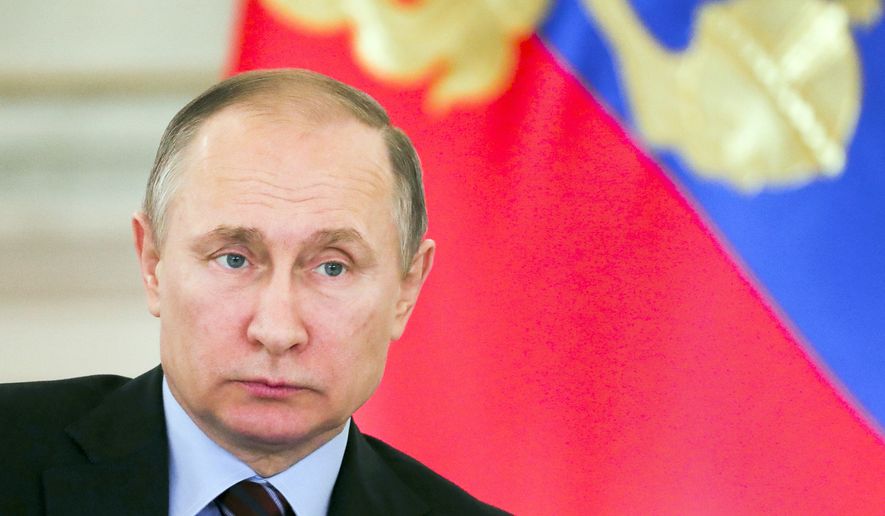ANALYSIS/OPINION
With the Trump administration focused on other hot spots of the world, from Iran and Syria to North Korea, Russia is stealthily making carefully coordinated moves to bring several “frozen” conflict zones closer to the Motherland.
Transdniester, a part of the tiny former Soviet republic of Moldova lodged between Ukraine and Romania, has long had the “honor” of hosting lots of Russian troops (since the early 1990s) and essentially has become a territory of the Russian Federation. The Kremlin seems to be using this model for other regions where Moscow has had to “protect” Russian speakers living in lands beyond its present borders.
The most recent examples of this phenomenon are the two occupied, former territories of Georgia in the Caucasus. I’m speaking of South Ossetia and Abkhazia, both “reaccommodated” from Georgia during the Russo-Georgian War of 2008. There have been multiple actions in these areas that make it obvious Russia is making plans to eventually fully bring them under Kremlin control.
There have been several border closures in the recent months — for instance during elections that were held in South Ossetia, which included a proposal to change the name of the region to the state of “Alania.”
The Georgian government protested vigorously against these measures, of course, and NATO condemned the elections as illegitimate. Three Georgian citizens were recently taken into custody in South Ossetia as they were attempting to visit the graves of their relatives during Easter holidays. Over 30,000 Georgians were evicted from their homes during the war and are restricted from taking care of their loved one’s resting place.
In another overt gesture, Russian Foreign Secretary Sergey Lavrov recently paid a visit to the other occupied Georgian territory, Abkhazia, during which he opened a Russian embassy in the state, which is only recognized by Russia and a few other nations, like Venezuela and Nicaragua.
“When we speak about diplomats, embassies are like the second home for us. So I would like to congratulate all our diplomats and the Russian Foreign Ministry on the opening of the new building of our embassy in the Republic of Abkhazia,” Mr. Lavrov said during the ceremony. “I am confident that the embassy will be the second home not only for our diplomats but also for our Abkhazian friends, as well as for friends from the diplomatic corps.”
Russian President Vladimir Putin signed a decree earlier in the year which brought several of the best military units in the disputed territories under the control of the Russian armed forces. Other troops were disbanded and disarmed.
In eastern Ukraine, there have been repeated attempts to also legitimize Russian control over the Donbass region controlled by pro-Russian separatists battling Kiev. Russia has begun to accept formal, government-issued documents from the Luhansk and Donetsk “People’s Republics” as valid documents for marriage certificates, passports and other functions.
Moscow is laying the groundwork for use of the ruble and the legal tender in the disputed areas of Ukraine.
All of these moves have happened as the Minsk agreements, signed by Russia, Ukraine and several Western powers, have yet to be implemented and now look impossible to see put into place. It is obvious Moscow has been financially supporting its allies in eastern Ukraine for some time. Perhaps the Kremlin has decided to make permanent the status of the frozen conflicts, at a time when the West seems powerless to stop them.
Sanctions on Russia over the annexation of Crimea do not look to be lifted soon either. Moscow may have decided it has nothing to lose by pulling these areas closer to Mother Russia.
⦁ L. Todd Wood is a former special operations helicopter pilot and Wall Street debt trader, and has contributed to Fox Business, The Moscow Times, National Review, the New York Post and many other publications. He can be reached through his website, LToddWood.com.
• L. Todd Wood can be reached at ltwood@123washingtontimes.com.




Please read our comment policy before commenting.